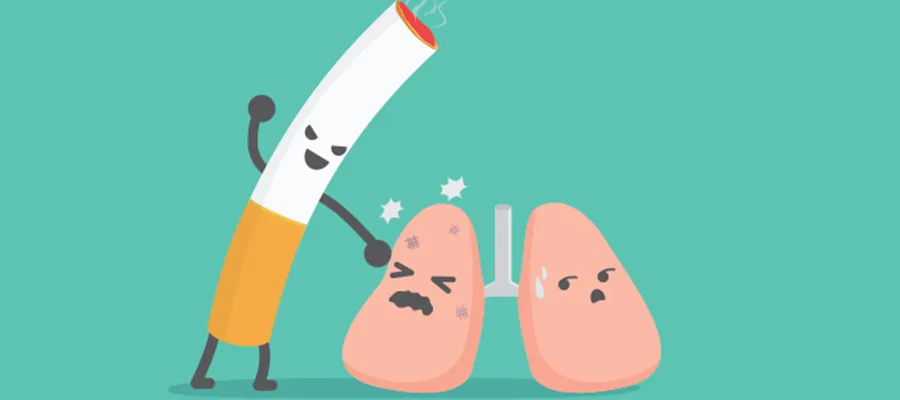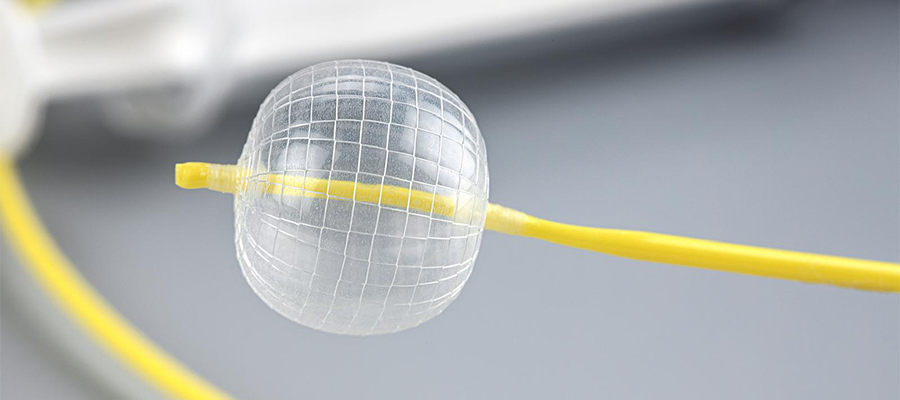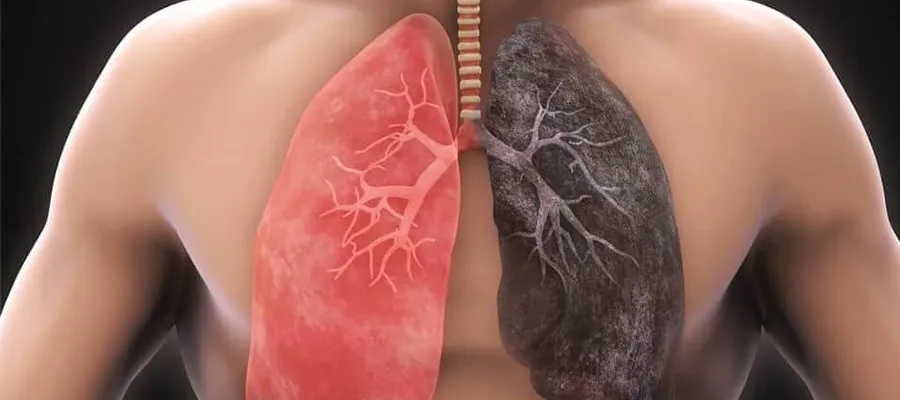Does COPD Go Away When You Quit Smoking?
The question of whether COPD will go away when you quit smoking is a significant concern for both those struggling with addiction and those diagnosed with COPD. Individuals whose quality of life is diminished by symptoms like shortness of breath, cough, and phlegm often question whether quitting smoking will actually eliminate this chronic disease. However, the most important fact to understand is this: The answer to the question of whether COPD will go away when you quit smoking is “it won’t go away completely, but its progression can be halted.”
COPD, or Chronic Obstructive Pulmonary Disease, is a progressive and often irreversible disease that permanently restricts airflow in the lungs. This condition, caused by damage from smoking, often develops insidiously over many years. However, the good news is that quitting smoking is the most effective step in halting the progression of COPD and alleviating existing symptoms. Therefore, while quitting smoking may not completely eliminate the disease, it plays a critical role in controlling the condition.
What is the Connection Between COPD and Smoking?
Smoking is the biggest and most common cause of COPD. Cigarette smoke causes inflammation in the airways, damage to lung tissue, and narrowing of the airways. This damage becomes permanent over time, leading to loss of elasticity in the lungs. Smokers have a much higher risk of COPD than nonsmokers.
The vast majority of individuals diagnosed with COPD are long-term smokers. If smoking is not stopped, the disease progresses rapidly, with lung function declining significantly each year. However, quitting smoking slows this decline and, in some patients, leads to a reduction in symptoms.
Does COPD Get Better After Quitting Smoking?
The fundamental characteristic of COPD is that the structural changes in the lungs are largely permanent. Therefore, quitting smoking doesn’t completely reverse existing damage. However, this doesn’t mean quitting smoking is useless. On the contrary, the body begins to repair itself from the moment it quits, significantly slowing the progression of COPD.
After quitting smoking, the following positive changes can be observed in COPD patients:
Relief of shortness of breath
Decrease in cough and sputum amount
Increased exercise capacity
Improved resistance to lung infections
Increased sleep quality
Improvement in general vitality and psychological state
All of these effects can vary depending on the stage of the disease and individual health status. When stopped early, these positive effects are much more pronounced.
What are the benefits of quitting smoking on COPD?
The benefits of quitting smoking for COPD patients aren’t limited to the respiratory system. Many systems throughout the body are positively affected. Here are the changes you can see after quitting:
The decline in lung function comes to a halt.
Oxygen use in the body increases, cells function more healthily.
The pressure on the cardiovascular system is reduced.
The defense system against infections is strengthened.
The lungs’ ability to clear mucus recovers over time.
There is a regression in chronic cough and wheezing.
All of these improvements positively impact both physical health and mental well-being. Quitting smoking, especially immediately after a COPD diagnosis, significantly slows the progression of the disease.
Does COPD Return When You Quit Smoking?
The airway narrowing and alveolar damage that occur in COPD are generally irreversible. This means that the disease cannot be completely cured. However, if caught early and smoking is stopped, the disease can be stable. Especially in patients with mild and moderate COPD, lung function can remain stable without further deterioration.
Therefore, while the question “Does quitting smoking cure COPD?” is technically a “no,” the answer can be functionally “symptoms may decrease and progression may be halted.” This translates to improved quality of life, a reduced risk of complications, and a longer lifespan for the patient.
What COPD Patients Should Do After Quitting Smoking
A COPD patient who quits smoking shouldn’t just take this step; they should also make some lifestyle changes to preserve lung function and improve their quality of life. These changes contribute significantly to the treatment process.
The main points that COPD patients should pay attention to after quitting smoking are as follows:
Using inhalers regularly as recommended by your doctor
Getting annual flu and pneumonia vaccinations
Not neglecting exercise and physical activities
Participating in respiratory physiotherapy or rehabilitation programs
Eating a balanced diet and drinking enough fluids
Avoiding dusty and smoky environments
Not neglecting routine checks
These measures have a positive impact on the course of the disease after quitting smoking and open the door to a longer, healthier life.
Is It Too Late to Quit Smoking in COPD?
Another question COPD patients often ask is, “I’ve been smoking for years. Isn’t it too late?” No, it’s never too late. Quitting smoking is beneficial regardless of the stage of COPD. Of course, the effects of quitting are more pronounced in the early stages. But even in advanced stages, quitting smoking reduces the risk of infection, relieves symptoms, and increases the effectiveness of treatment.
Every cigarette you quit gives your body a chance to recover. Therefore, even for someone diagnosed with COPD, quitting smoking is the best choice.
Does Quitting Smoking Improve the Quality of Life of COPD Patients?
Yes, the majority of COPD patients who quit smoking report a significant improvement in their quality of life. Breathing easier, being able to carry out daily activities without difficulty, needing fewer medications, and being more resistant to infections are just a few examples of these changes. Psychologically, they also feel more motivated, in control, and stronger.
Quitting smoking is the most powerful step in making life with COPD easier and giving patients control. Therefore, the decision to quit should not be postponed; if necessary, this process should be managed with professional support.
Can Quitting Smoking Replace COPD Treatment?
No, quitting smoking is not a substitute for COPD treatment; however, it significantly enhances its effectiveness. Quitting smoking is essential to halt disease progression and alleviate symptoms. However, it is not sufficient on its own. True success is achieved when combined with medication, respiratory support, physical therapy, and lifestyle changes.
Because COPD is a chronic disease, it requires regular monitoring. Quitting smoking is the cornerstone of this process, but other cornerstones shouldn’t be neglected.
How Much Does COPD Treatment Cost?
COPD treatment varies depending on the stage of the disease, medications used, physical therapy programs, and follow-up frequency. Furthermore, the equipment and experience of the healthcare provider’s team can also influence the cost. This process, tailored to individual needs, can only be determined after a personalized assessment. Contact us today for pricing on whether COPD goes away after quitting smoking.








